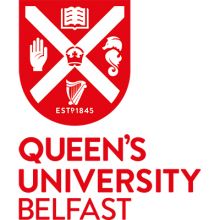Economic and Social Research Council
Research grants
- Award winner: Teresa McCormack
- Institution: Queen’s-University Belfast
- Value: £278,282
The development of episodic future thinking and future-oriented decision-making
- Award winner: Sujatha Raman
- Institution: University of Nottingham
- Value: £55,753
Biomass fuel at the nexus: policy lessons from bottom-up perspectives in urban Ghana
- Award winner: Matthew Walton
- Institution: University of Oxford
- Value: £482,946
Understanding Buddhist nationalism
Engineering and Physical Sciences Research Council
Research grants
- Award winner: Eileen Harkin-Jones
- Institution: Ulster University
- Value: £325,687
Novel high-performance polymeric composite materials for additive manufacturing of multifunctional components
- Award winner: Etienne Burdet
- Institution: Imperial College London
- Value: £292,798
Morphological computation of perception and action
Biotechnology and Biological Sciences Research Council
- Award winner: Helen Hailes
- Institution: University College London
- Value: £457,840
Enzyme cascades and synthetic biology routes to non-natural alkaloids
- Award winner: Tracy Lawson
- Institution: University of Essex
- Value: £52,125
Role of protein phosphorylation in maintenance of photosystem two activity
Arts and Humanities Research Council
Research grants
- Award winner: Nicholas Gebhardt
- Institution: Birmingham City University
- Value: £34,421
Jazz and everyday aesthetics
- Award winner: Nicholas White
- Institution: University of Cambridge
- Value: £34,703
The art of friendship in France, 1789-1914
In detail
Award winner: Jonathan Reinarz
Institution: University of Birmingham
Value: £754,548
Forged by fire: burns injury and identity in Britain, c.1800-2000
British tragedies involving burns and scalds have been seen on an individual and collective level for the past 200 years. Burns remain a visually unique, sensually assaulting and emotionally overwhelming injury. With significant effects on mobility, the self and identity, burns exact a psychological as well as a physical toll on the individual. This project will explore how burns have shaped individual, urban and group identity. In the 19th century, the mortality rate for burn injuries was 50 per cent. In the first half of the 20th century, about 20 to 30 per cent of burned and scalded people annually were hospitalised and 2 per cent of those, half of whom were children, died. Today, burns injuries make up about 175,000 of all A&E visits, but only about 10 per cent of those result in hospitalisations, and 300 people die. There has been little done around prevention. While burns incidents have influenced the professionalisation of ambulance and fire services, little is known about their roles in coordinating life-saving treatment. By considering the ways in which burns knowledge is disseminated through history – literature, the media, court records and so on – the team aims to make a sustained difference to prevention strategies, potentially feeding through to national policy.
Register to continue
Why register?
- Registration is free and only takes a moment
- Once registered, you can read 3 articles a month
- Sign up for our newsletter
Subscribe
Or subscribe for unlimited access to:
- Unlimited access to news, views, insights & reviews
- Digital editions
- Digital access to THE’s university and college rankings analysis
Already registered or a current subscriber?


